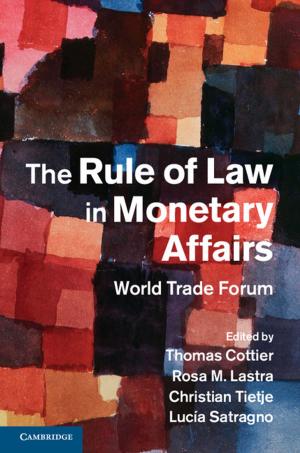The Theory of Self-Determination
Nonfiction, Reference & Language, Law, International, Social & Cultural Studies, Political Science| Author: | ISBN: | 9781316482070 | |
| Publisher: | Cambridge University Press | Publication: | April 7, 2016 |
| Imprint: | Cambridge University Press | Language: | English |
| Author: | |
| ISBN: | 9781316482070 |
| Publisher: | Cambridge University Press |
| Publication: | April 7, 2016 |
| Imprint: | Cambridge University Press |
| Language: | English |
When can a group legitimately form its own state? Under international law, some groups can but others cannot. But the standard is unclear, and traditional legal analysis has failed to elucidate it. In The Theory of Self-Determination, leading scholars chart new territory in our theoretical conception of self-determination. Drawing from diverse scholarship in international law, philosophy, and political science, they attempt to move beyond the prevailing nationalist conceptions of group definition. At issue are such universal questions as: when does a group qualify as a 'people'? Does history matter? Or is it a question of ethnic status? Are these matters properly solved by popular vote? Anchored in modern analytical political philosophy but with implications for a wide range of scholarship, this volume will prove essential for scholars and practitioners of international law, global justice, and international relations.
When can a group legitimately form its own state? Under international law, some groups can but others cannot. But the standard is unclear, and traditional legal analysis has failed to elucidate it. In The Theory of Self-Determination, leading scholars chart new territory in our theoretical conception of self-determination. Drawing from diverse scholarship in international law, philosophy, and political science, they attempt to move beyond the prevailing nationalist conceptions of group definition. At issue are such universal questions as: when does a group qualify as a 'people'? Does history matter? Or is it a question of ethnic status? Are these matters properly solved by popular vote? Anchored in modern analytical political philosophy but with implications for a wide range of scholarship, this volume will prove essential for scholars and practitioners of international law, global justice, and international relations.















